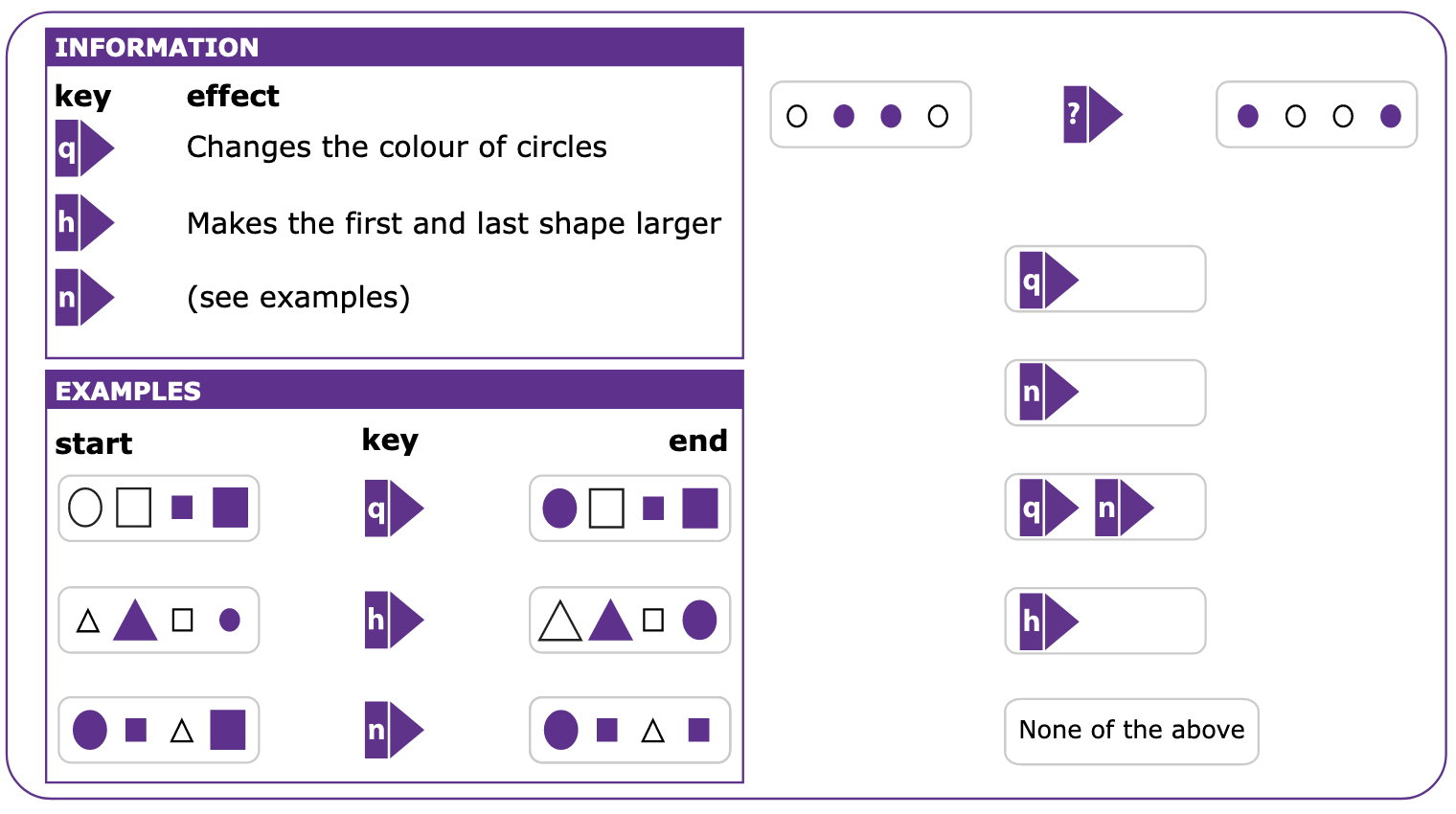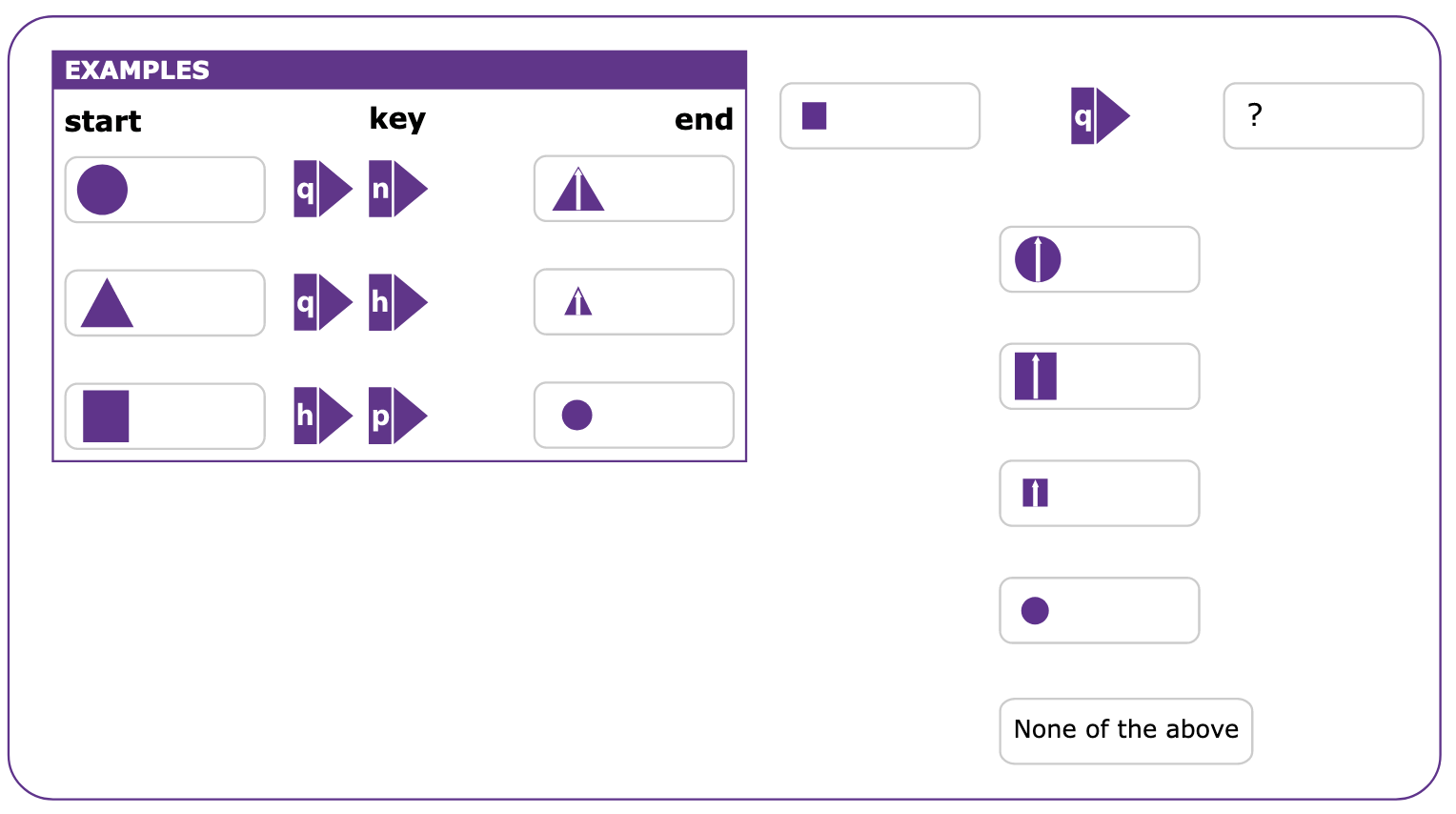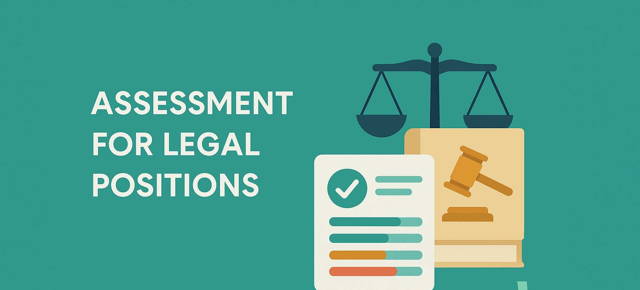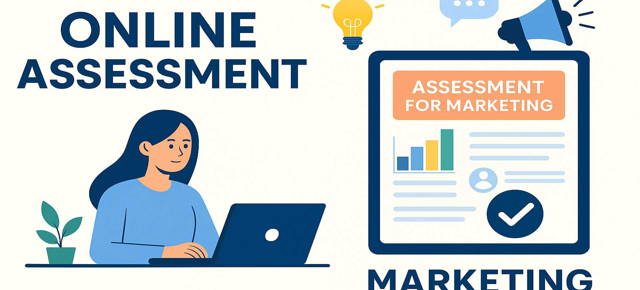Logical reasoning test
Products
Wednesday 05 June 2024Logical reasoning test
A logical reasoning test measures a candidate's ability to arrive at a logical conclusion. Candidate testing is becoming increasingly important, which is why more and more companies have included the analytical test in their recruitment and selection process.
Testing the logical reasoning ability
Candidates' ability to reason logically can be tested with The Bridge Abstract. This is an analytical test built on a solid scientific basis and was specially developed for use in a business context.
Testing Logical Reasoning
This cognitive ability test is increasingly being included in selection procedures for positions in which drawing the right conclusions or forming a judgment is important. This includes high-level management positions, but also, for example, the position of policy officer, a lawyer, or that of a journalist.

Logical reasoning assessment
The Bridge Ability suite ability test is one of the most comprehensive online assessments. It consists of three parts: The Bridge Verbal, The Bridge Numerical, and The Bridge Abstract. In addition to testing the candidate's skills in both numerical and verbal reasoning, it also examines ability to draw logical conclusions
Logical reasoning as a measure of intelligence
By using The Bridge Abstract, it is possible to predict what a candidate's maximum performance level will be. In addition, the test can provide an indication of the candidate's intelligence (IQ).
The online assessment is available for different levels. This assessment to measure the ability for logical reasoning can therefore be used as an excellent tool for the recruitment and selection of candidates for positions at MBO, HBO, and WO levels.
Test candidates for logical reasoning
The results of the analytical test provide a good indication of a person's performance in a particular position. This is important to be able to select the best candidate for a certain position or to predict whether your employee would be able to complete a certain training.
What exactly is 'logical reasoning'?
Logical reasoning, contrary to what you might think, is not an innate quality. Logical thinking is a skill that can be learned and continuously improved.
Logical thinking and reasoning means focusing on a specific task by going step-by-step through the entire thought process. That sounds abstract, but in a nutshell, it means analyzing a situation, discovering patterns, and ultimately arriving at a sensible conclusion.
Testing Problem Solving Ability
Testing the ability to think logically thus provides insight into the extent to which a test candidate can solve a problem in an efficient way. Complex visual information is used for this. In fact, we could say that logical thinking is the basis of all assessments. It is necessary for verbal logical reasoning, numerical reasoning, but also abstract reasoning. It is important to note that the abstract reasoning ability, also called inductive reasoning, is part of the global term 'logical reasoning' and is therefore not the same as logical reasoning.

Verbal and numerical logical thinking
In The Bridge numerical test, the candidate is presented with a questionnaire with numerical information in the form of figures, tables, series of numbers, or analogies. In order to score well on the numerical reasoning component, as many questions as possible must be answered correctly and under a light time constraint.
In the verbal reasoning test, the candidate will be presented with verbal information in the form of a text, possibly in combination with graphs, for example. The candidate is given the task of drawing conclusions from the text under a time constraint.
Abstract reasoning
This type of test is also known as inductive reasoning. In this test, the candidate is presented with information in the form of a series of abstract symbols and diagrams. This information is necessary to solve the question and thus be able to provide the correct answer. It's all about discovering a pattern and logic in a sequence.
The inductive reasoning test is performed under a slight time constraint. The candidate is given 17 minutes to answer 25 questions. Naturally, the test is preceded by a detailed explanation.
Does practicing logical reasoning help?
Good logical reasoning is not an innate talent. It can be learned, and, with effort, we can also get better at it over time. A candidate who scores poorly on a logical reasoning test can therefore achieve a higher score in subsequent assessments by practicing logical reasoning. The candidate, therefore, benefits from ensuring proper preparation.
Prepare for the real tests
A candidate can prepare for the real assessment by working with abstract data where it is necessary to think logically. Extensive explanations can be found on the internet about preparing for tests in which logical reasoning is central.
Logical reasoning can be learned
In preparation for the real tests, for example, one can solve logic puzzles. Problems can also be solved that require analytical, logical reasoning, or spatial insight. Think, for example, of the systems in which a clear pattern can be found, such as within IT, biology, or chemistry. It is preferable to practice under a time constraint. Good preparation ensures that the candidate knows what to expect.
Testing logical reasoning is important
Being able to pass an analytical test that focuses on abstract, numerical, and verbal reasoning is an important predictor of a candidate's ability to understand the relationships between cause and effect. A candidate who excels in the test will also be able to apply those skills in the workplace in the form of problem-solving, negotiation, and estimation of cause and effect.
Assessments provide clarity
Cognitive assessments are now more important than ever. Finding staff is difficult for many companies and organizations. Analytical tests provide clarity.
Make better HR decisions
HR managers and recruiters who use logical reasoning tests can make better hiring decisions because they can better estimate candidates’ performance in advance.
Recruit talent, but also retain it
Top talents can be selected or retained and move on to positions within your organization where they can deliver the best performance. This ensures productivity but also helps to prevent high turnover.















